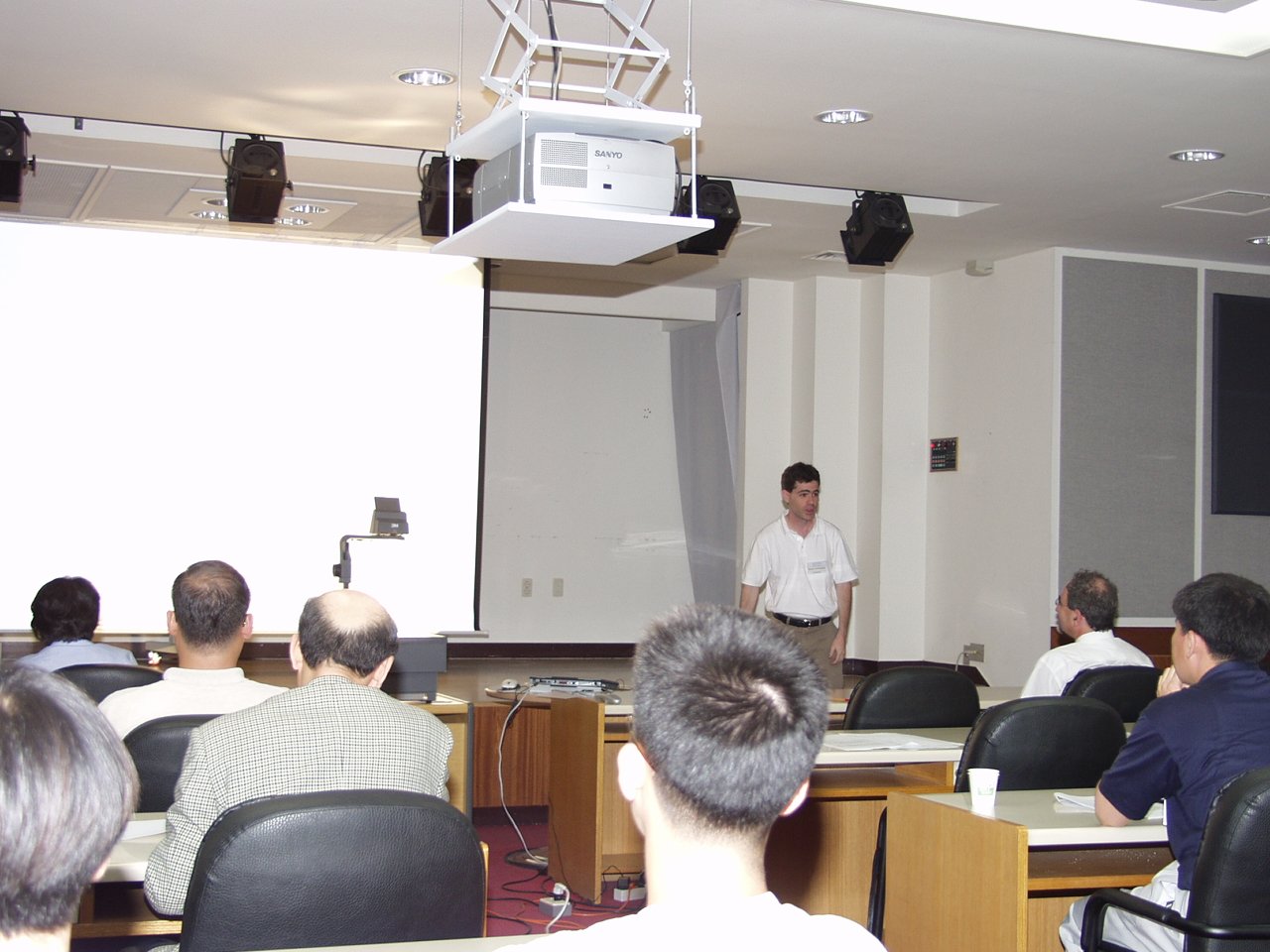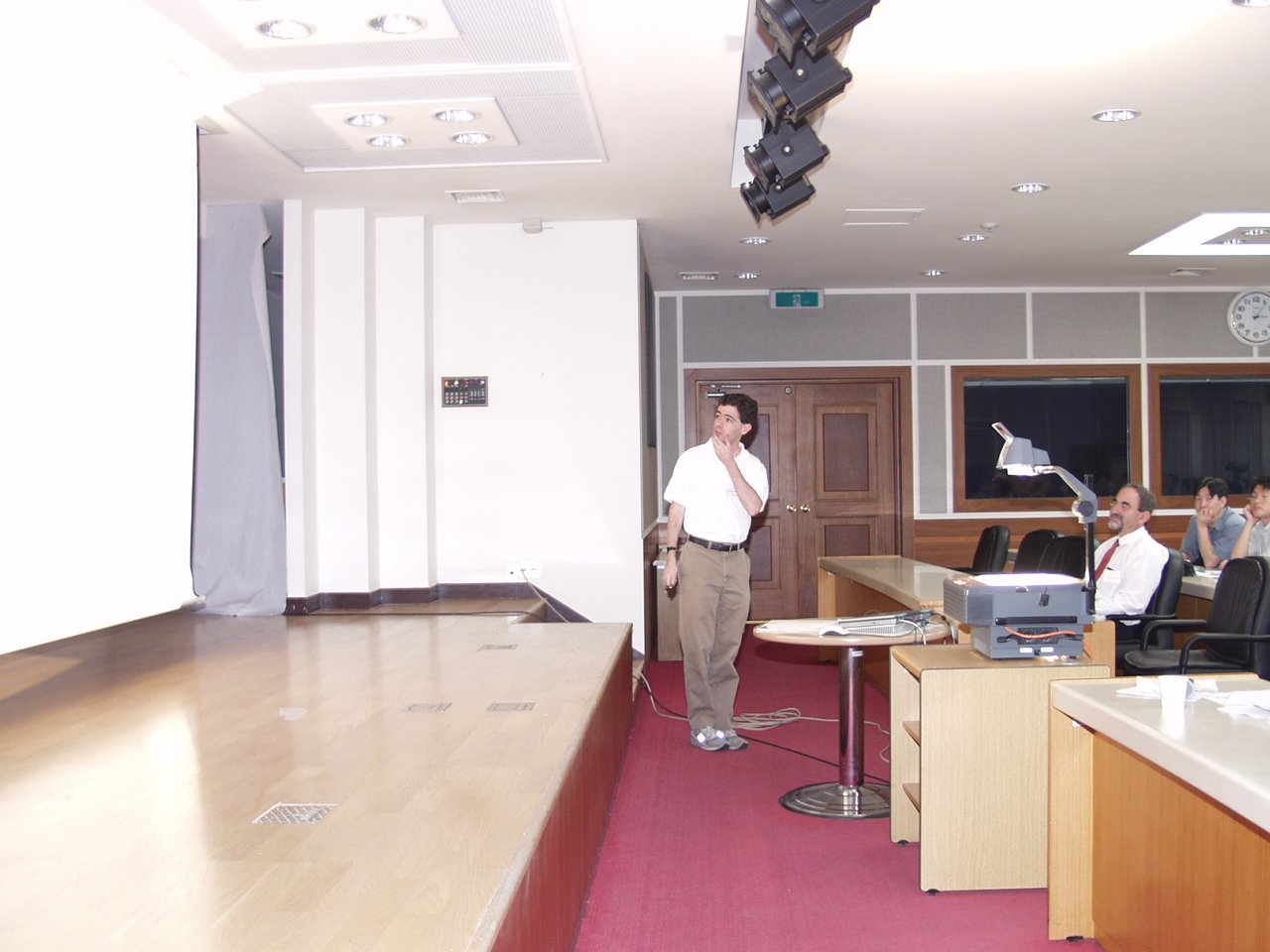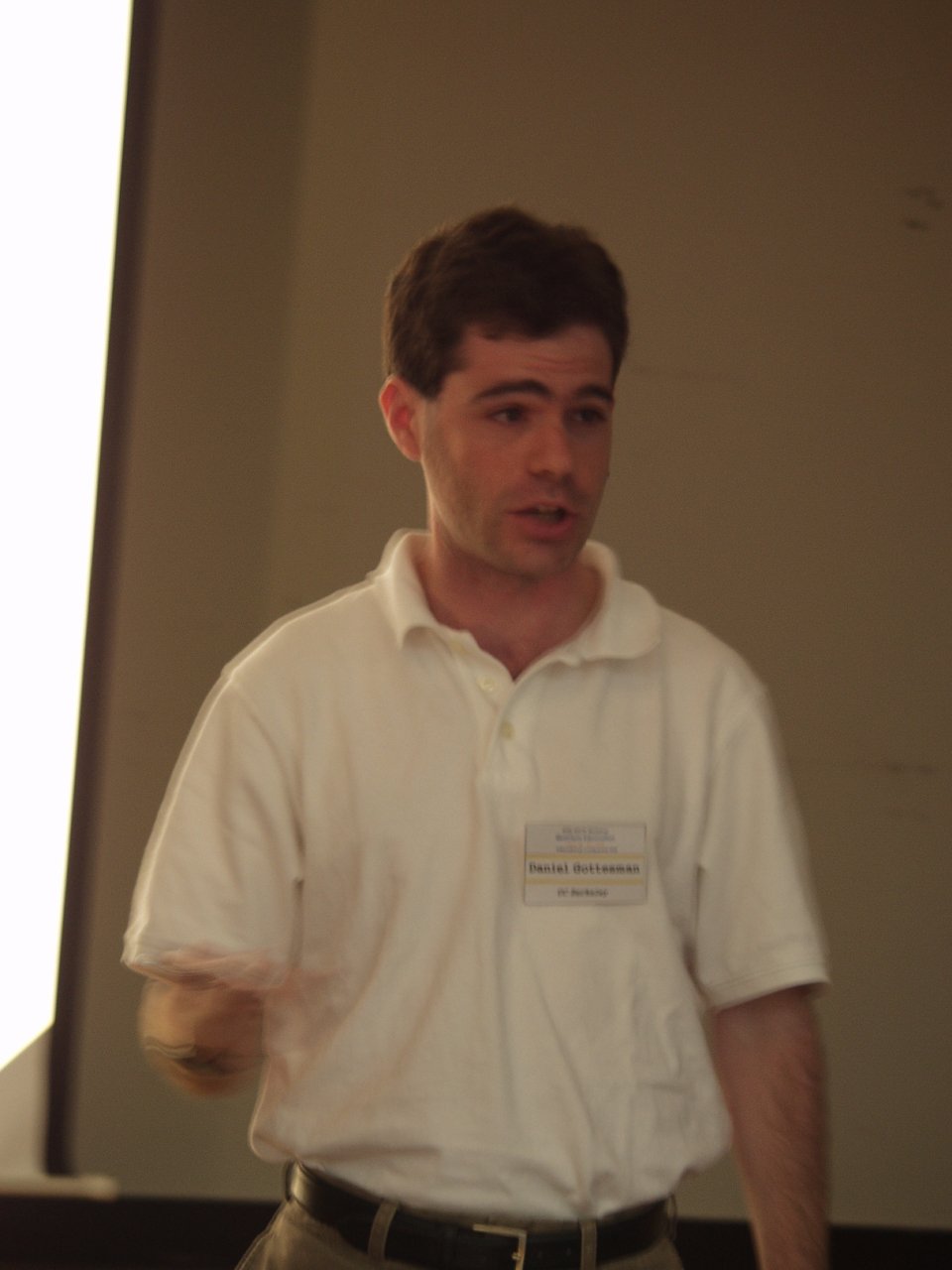

Daniel Gottesman (UC Berkeley, USA)
Presentations: Click_Here_1, Click_Here_2



My home page <http://www.cs.berkeley.edu/~gottesma> has this information. Here is an excerpt:
I am currently a Long-Term CMI Prize Fellow with the
Clay Mathematics Institute and UC Berkeley.
My position began in January
2001, and will continue until summer 2002.
I got my Ph.D. at Caltech
in 1997, and did postdocs at Los Alamos National Lab and Microsoft Research.
I
currently work on quantum computation (particularly quantum error correction
and fault-tolerant quantum computation) and quantum cryptography.
1. Introductory talk:
Title: Introduction to Quantum Error Correction
Reference: D. Gottesman, "An Introduction to Quantum Error Correction," quant-ph/0004072.
Quantum superpositions are very delicate. Just looking at one will make it collapse into something that acts classically, and the environment is always trying to look (a process known as decoherence). Building a functioning quantum computer will almost certainly require some sort of fault-tolerant protocol so that individual errors and local decoherence do not poison the whole computation. I will describe the basic theory of quantum error correction, particularly the theory of stabilizer codes.
2. Research talk:
Title: Authentication of Quantum Messages
Abstract: Suppose someone sends you a quantum state. How can you tell if the state has been tampered with en route? This task is called "authentication". There are good solutions known for classical information; I will describe how to do it for quantum information. There is a substantial difference between authentication for classical and quantum information: while classical authentication can be done by just appending a tag to the original message, quantum authentication requires you to encrypt the quantum state as well. One application of quantum authentication is paradoxically to send unclonable encrypted classical messages: an eavesdropper not only cannot learn the message, but she cannot even copy it to study later without revealing her presence.